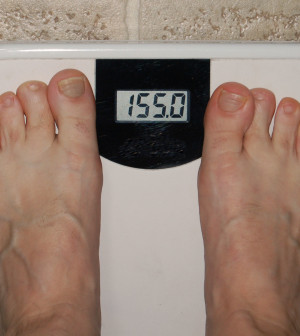- Could Artificial Sweeteners Be Aging the Brain Faster?
- Techniques for Soothing Your Nervous System
- Does the Water in Your House Smell Funny? Here’s Why
- Can a Daily Dose of Apple Cider Vinegar Actually Aid Weight Loss?
- 6 Health Beverages That Can Actually Spike Your Blood Sugar
- Treatment Options for Social Anxiety Disorder
- Understanding the Connection Between Anxiety and Depression
- How Daily Prunes Can Influence Cholesterol and Inflammation
- When to Take B12 for Better Absorption and Energy
- Epsom Salts: Health Benefits and Uses
Like Mother, Like Child: Study Hints at Why Obesity May Run in Families


New research offers potential clues as to why children of obese mothers are at increased risk for obesity.
While previous studies have provided clear evidence that children of obese parents are more likely to be obese, the reasons why were unclear.
But the new study found that while in the womb, the cells of children of obese mothers may be programmed to accumulate extra fat, or develop differences in metabolism that could lead to insulin resistance — a condition that increases the risk of type 2 diabetes.
The researchers extracted stem cells from donated umbilical cords of babies of obese and normal-weight mothers and grew the cells into fat and muscle cells in the lab. Compared to those from normal-weight mothers, the lab-grown cells from obese mothers had 30 percent more fat. Further analysis is needed to determine if the cells from obese mothers also have altered metabolism.
“At this point, because this is fairly preliminary, we don’t know how these differences in cells grown in the lab correspond to the physiology of these children after birth,” Kristen Boyle, assistant professor at the University of Colorado School of Medicine, said in an American Diabetes Association news release.
“But it’s clear that there is an inherent propensity toward more fat content in the cells from offspring of obese moms, in [lab research]. We also know that the fat accumulation in these cells corresponded to the baby’s fat mass at birth. The next step is to follow these offspring to see if there is a lasting change into adulthood,” Boyle explained.
The study was scheduled to be presented Tuesday at the American Diabetes Association annual meeting in Boston. The data and conclusions should be viewed as preliminary until published in a peer-reviewed journal.
More information
Learn more about keeping children at a healthy weight from the American Academy of Family Physicians.
Source: HealthDay
Copyright © 2026 HealthDay. All rights reserved.










